You are here
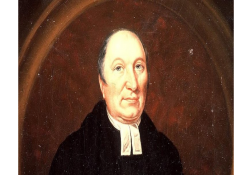 October 10 2022
A QUARTET OF REFORMED ANGLICANS: FIRM AND FORMER -- Part Four
October 10 2022
A QUARTET OF REFORMED ANGLICANS: FIRM AND FORMER -- Part Four
Little known as he is today, as to the breadth of his crucial influence, any recollection of his name is usually associated with the charming story of Mary Jones and Her Bible (worth reading) in which the godly provider of the sacred text almost appears as a secondary character.
Read more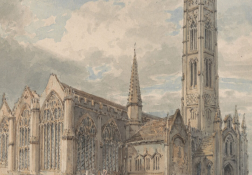 October 08 2022
TOWARD A CONFESSIONAL ANGLICANISM
October 08 2022
TOWARD A CONFESSIONAL ANGLICANISM
Those who tend to de-emphasize the authority of the Articles, if not reject them entirely, identify as Anglo-Catholics, liberals, and evangelical charismatics. So, what is the place of the Thirty-Nine Articles in the Anglican church today? Is it realistic or worthwhile to attempt to turn back the clock to a time when the Articles were acknowledged as the standard for faith and practice in the Church of England?
Read more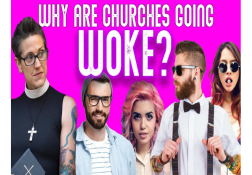 October 05 2022
Why Churches Go Woke: They Deny The Sufficiency Of Scripture
October 05 2022
Why Churches Go Woke: They Deny The Sufficiency Of Scripture
The question being asked is not if we have a sufficient Word on these matters--but if these systems of thought have a seat at the table to inform how we understand the Word itself. The church is actually not debating the issues at hand, not in the fullest sense. Rather, the issue behind the debates surround the nature of what our final authority is when one considers how the issues play out in our social milieu.
Read more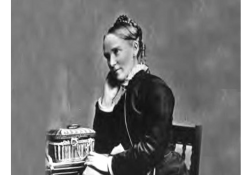 September 28 2022
A QUARTET OF REFORMED ANGLICANS: FIRM AND FORMER (Part Three)
September 28 2022
A QUARTET OF REFORMED ANGLICANS: FIRM AND FORMER (Part Three)
Frances was gifted, from an early age, with a talent for languages; contemporary European such as Italian and French, and the biblical languages Hebrew and Greek.Evidently, she was of considerable intellectual prowess. As her gift of poetic composition developed as a maturing believer, Frances dedicated this ability to the service of the Lord and the cause of the gospel. Her evangelistic concern was eloquently manifest through her wide range of eminently Scriptural hymns.
Read more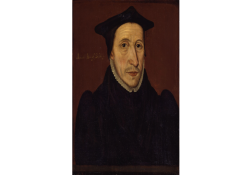 September 23 2022
JOHN JEWEL, AN APOLOGIE
September 23 2022
JOHN JEWEL, AN APOLOGIE
Several took up the challenge and, in the context of this debate, Jewel wrote "The Apologie of the Church of England." In this short essay he explained in a concise and beautiful way why schism is, at the same time, regrettable and sometimes necessary - the only proper response towards an institutional church that refuses to reform itself according the authority of Holy Scripture.
Read more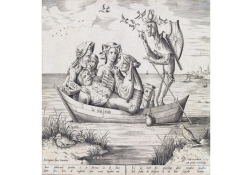 September 20 2022
UNFREE WILL
September 20 2022
UNFREE WILL
"I have been talking about the un-free will for thirty years and have never had a single person agree with me on my first attempt. People instinctively rise up against the idea. I repeat, I have not experienced a single instance, in thirty years, of anyone immediately agreeing with me that the human will is not free. (In fact, the only people who display any receptivity at all to the idea are alcoholics and criminals.
Read more September 10 2022
A QUARTET OF REFORMED ANGLICANS (Part Two)
September 10 2022
A QUARTET OF REFORMED ANGLICANS (Part Two)
His treasured volume entitled Christian Leaders of the Last (Eighteenth) Century, first published in 1868, was fairly recently made available by Charles Nolan Publishers, Moscow, Idaho, 2002, and a brief account of a smaller number of these able servants of God has been published by The Banner of Truth Trust as Five Christian Leaders (see their online catalogue).
Read more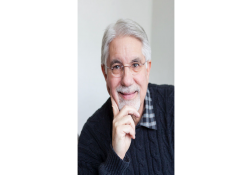 September 04 2022
ORTHODOX PROFESSOR FIRED FROM EVANGELICAL SCHOOL FOR TRADITIONAL MARRIAGE VIEWS
September 04 2022
ORTHODOX PROFESSOR FIRED FROM EVANGELICAL SCHOOL FOR TRADITIONAL MARRIAGE VIEWS
Dr. Bradly Nassif, a widely-published scholar and professor in North Park's Christian Studies Department for 17 years, was one of four tenured faculty fired when the university closed the department in May 2021, without consulting with the faculty senate as required by its own governing documents, reports the Bull Elephant.
Read more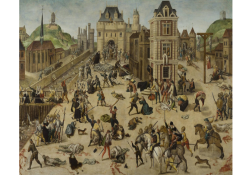 August 24 2022
HUGENOTS AND THE PROTESTANT EPISCOPAL CHURCH IN THE U.S.
August 24 2022
HUGENOTS AND THE PROTESTANT EPISCOPAL CHURCH IN THE U.S.
Protestantism signified greater religious and political freedom which appealed to many French intellectuals and the professional classes, but the world was still Roman Catholic, France was still more than 90% Catholic, and the Catholic Church was determined to maintain its control. Leading up to St. Bartholomew's Day (beginning the evening of August 23, 1572), clashes between Protestants and Catholics worsened.
Read more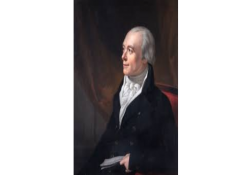 August 17 2022
A QUARTET OF REFORMED ANGLICANS: FIRM AND FORMER
August 17 2022
A QUARTET OF REFORMED ANGLICANS: FIRM AND FORMER
In church history, as with everywhere else in viewing the past, it is the pre-eminent persons who attract the spotlight, and that, of course, is perfectly proper to a large degree. It is the grand movements in history that are chiefly "grandstanded" before an interested public. But there are less obvious figures, no less called and gifted by God, whose roles in the cause of Christ warrant our attention and appreciation.
Read more


